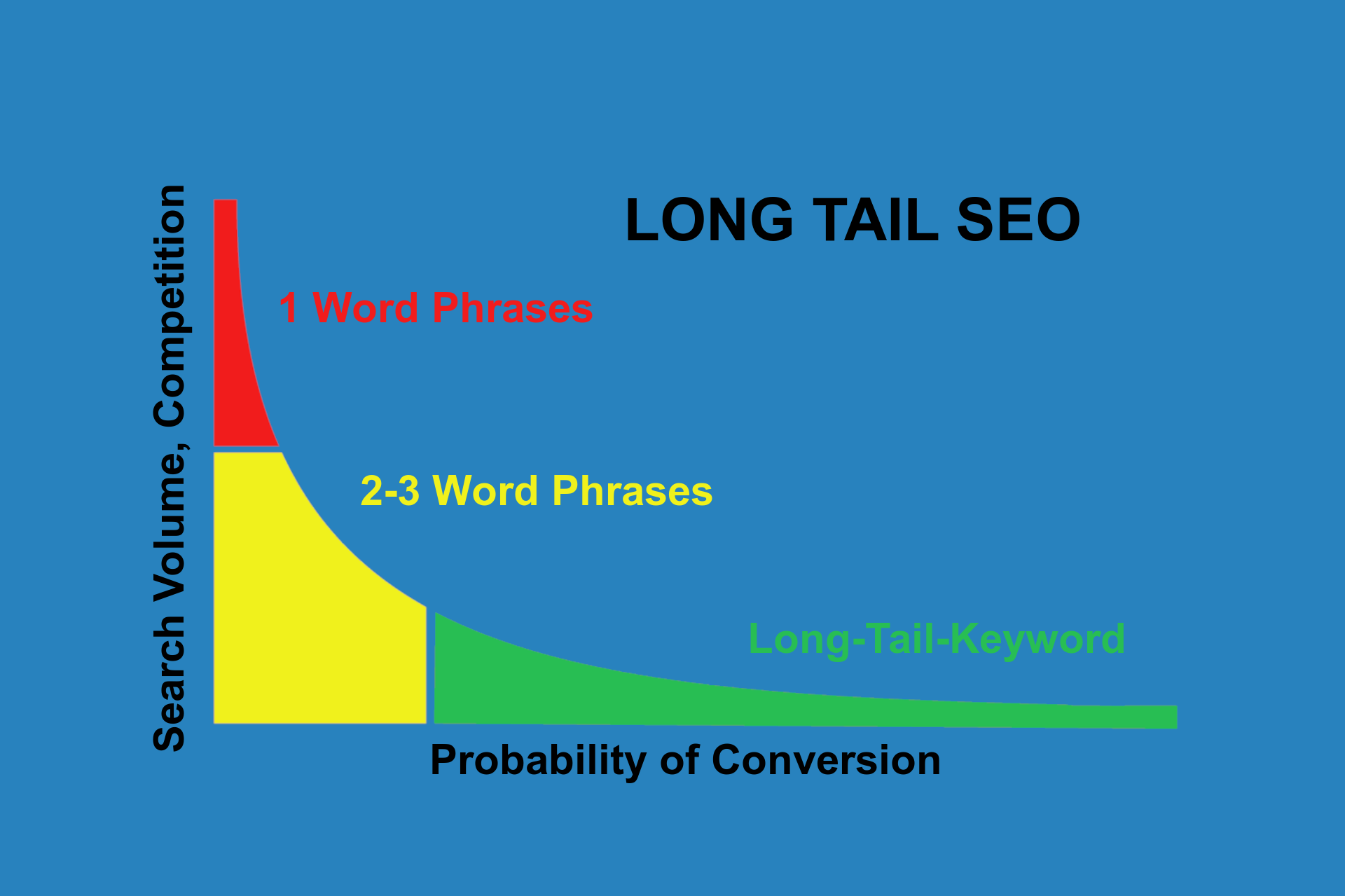Keyword optimization is a crucial part of search engine optimization (SEO), which focuses on improving individual web pages to achieve higher rankings in search engine results and gain more relevant traffic. In this article, we will focus on SEO optimization for longer keywords (long-tail keywords), a strategy that aims to optimize content for more specific search queries.
Importance of longer keywords (long-tail-keywords)
Longer keywords, also known as long-tail keywords, are more specific search terms that often have less competition and offer a higher conversion rate. They tend to be more precise and reflect the user’s search intent more accurately. By optimizing for these keywords, website operators can reach a targeted audience.
The 80/20 rule
The 80/20 rule, also known as the Pareto principle, states that about 80% of the results are generated by 20% of the causes. In the context of long tail keywords, this principle can be applied in the following way.
Long tail keywords are specific search queries that consist of several words and address detailed information or a precise product target. In terms of the 80/20 rule, this means that around 80% of website traffic is often generated by around 20% of long tail keywords.
The majority of internet users tend to make more precise search queries to find exactly what they are looking for.Therefore, it is crucial to focus on these specific long tail keywords to attract more targeted and qualified visitors.
The 80/20 rule thus illustrates that companies and website operators can generate a significant proportion of their organic traffic by optimizing for a relatively small selection of long tail keywords. It is therefore worth focusing attention on these specific search terms in order to maximize the efficiency of search engine optimization and address relevant target groups.
Summary
SEO optimization for longer keywords is an effective SEO strategy to target specific audiences and improve search engine visibility. By focusing on the key elements mentioned above, website owners can ensure that their content is optimized for search engines and users alike. Comprehensive on-page optimization not only leads to better rankings, but also to higher user satisfaction and ultimately to an increase in conversion rates.
My tip: Google Keyword Planner can help you find good keywords.





Leave a Reply